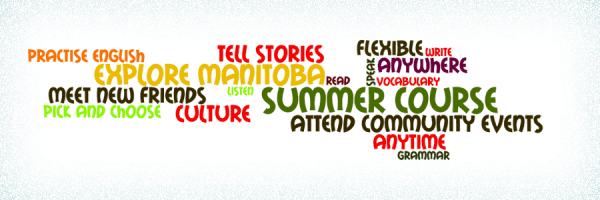Read Original Version (CLB5+) You are reading the Simple Version (CLB3-4) With so much to learn and things to do, sometimes it’s hard to focus on what’s important. After the initial excitement when we arrive, many of us get depressed, especially when our expectations do not align with reality. When this happens, it can prevent many of us from achieving successful integration. In times like these, we all need some advice. Who better to ask than people who work with and help newcomers every day? So we talked to integration experts, directors of settlement service provider organizations, settlement workers, and other members of the community and asked them the question: What is the most important ingredient to newcomer success? Here are some of the best pieces of advice we received: “Your success in living in a country with a different language and culture than your own will be dependent upon how well you can communicate within that culture. There is a saying that “Language is Culture!” Even if you arrive in Canada with good English language proficiency, it is the nuances of the language within the culture that will still need to be learned. Canadians have a reputation for being polite and apologetic. They generally don’t like aggressive behaviour, which in some cultures is the only way a person can get things done or get what they want or need, so learning how to get things done in a polite and non-confrontational way is a skill to be learned. “The more you know about Canadian culture, the better prepared you will be to meet any challenges you run into.” Doreen Cooper, Language Program Manager, Westman Immigrant Services About Westman Immigrant Services: “I have a lot of advice I’d like to give but I think I’ll talk about the main two. One relates to language and the other to mental health. And so because I coordinate a language training program, our clients are stage 2 CLB 5-8 learners who often have a profession back home: engineers, teachers, agrologists, business or IT professionals, etc., so what I’m going to mention maybe speaks to all language training, but specifically to the higher levels. I think my first piece of advice would be to critically reflect on what you’re learning. And this is something that might be a little new to some, depending on your educational background. This means to constantly be thinking about why we are learning things. Does this change the way I’m seeing the material? Or how is this (what I’m learning in class) different from what I’ve learned before? How can I use this towards bettering my English outside of the classroom? Reflecting on your learning can be through journaling or other reflective practices that your teacher might integrate into the class. I think it is very, very important to improve your language abilities. “The second point under language is to be open to feedback. Ask for feedback and ask questions as much as possible. Your instructor, and also those coordinating your language training program, want to give feedback that is useful to you. They want to maximize your time in the classroom as best they can. They want you to ask questions. They want to know how they can help you. So be open to feedback. Ask for it. Demand it. “And the second advice I would just like to make is just about mental health, mental wellness. I think that’s a huge issue for everybody these days, whether you’re Canadian-born or not. We’re so busy in our lives! We all know that we need to take time and try to make ourselves feel well; to do the things that we enjoy, or that helps us relax and refocus. But we often don’t have time to do them or make time to do them. So I think that it’s more important for newcomers to do the things that they enjoyed back home. Read a book, meet with your family and have supper, go for a walk, exercise, whatever it is. Don’t give up those things because these keep you well and healthy and enable you to continue on and reach your goals. “And one last thing, this might also be something that is not new but I found that our most successful students set goals. It’s simple, but setting goals that are short term and long term is important. And to be flexible with your goals. Our most successful students had a path. Their path may have changed along the way, but they always had the same goal in mind. Whether it was something short term that they could do now, this week. Or something long term that they were going to do. They had that in place. And they were very flexible in that they were willing to adapt.” Terena Caryk, English Language Program Coordinator, University of Winnipeg About English Language Program (Part-Time Evening Program): Please login to tell us what you think.Skip to:
Language is culture
Westman Immigrant Services is a not-for-profit organization that provides free services to immigrants and refugees (permanent residents) in Brandon and Southwestern Manitoba.Effective language learning, maintaining positive mental health & setting goals
The program is for anyone who would like to study English part-time in the evening or online to strengthen general, professional or academic English language skills. Permanent Residents, Canadian Citizens, Refugee Claimants, Temporary Foreign Workers, Visitors and International Students may apply.We'd love to hear from you!





